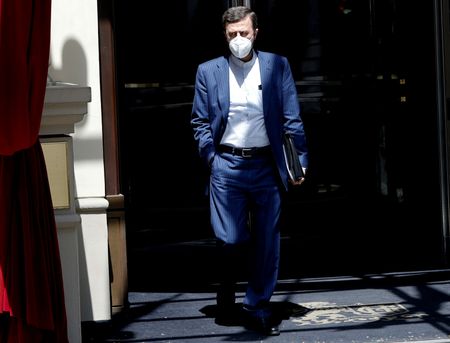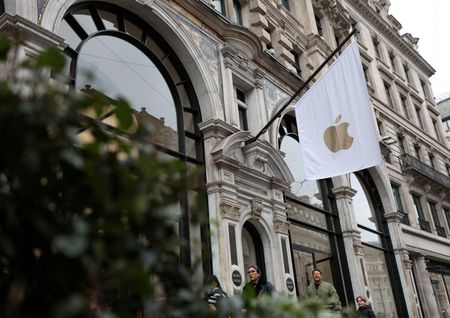BRUSSELS/STOCKHOLM (Reuters) – The European Commission said on Tuesday it was assessing its cases against Apple, Alphabet, X and Meta, stressing that President-elect Donald Trump’s return to the White House did not affect its commitment to enforcing its laws.
The European Union has been at the forefront of investigating U.S. Big Tech companies for potentially breaching laws designed to prevent them from using their clout to gain an unfair advantage over competitors.
Trump, who will start his second term as the United States’ 47th president on Monday, has been critical of various European policies and his ally Elon Musk has repeatedly clashed with regulators and politicians in the continent.
The Financial Times reported on Tuesday that Brussels was reassessing its investigations of Big Tech in a review which could lead it to scale back or change the scope of its probes as U.S. groups urge Trump to intervene.
Henna Virkkunen, the commissioner in charge of EU policy, told Reuters by email that the EU’s investigations were continuing as normal and no decision has been taken to suspend them.
A Commission spokesperson told reporters it was assessing rather than reviewing its cases, which was not linked to Trump’s arrival, and reiterated its commitment to regulating Big Tech.
“What we do have is upcoming meetings to assess maturity of cases, to assess the allocation of resources and the general readiness of the investigation,” the spokesperson said at the EU’s executive’s daily briefing.
U.S. tech giants have complained that regulation was stifling innovation and balked at large antitrust fines imposed by Brussels.
Meta Chief Mark Zuckerberg last week called on Trump to stop the EU from fining U.S. tech firms and Trump ally Elon Musk has repeatedly clashed with EU regulators.
Speaking to popular podcaster Joe Rogan, Zuckerberg said that the European Commission’s application of competition rules is “almost like a tariff” on U.S. tech companies.
The EU’s newest laws – the Digital Markets Act (DMA), which imposes antitrust obligations, the Digital Services Act (DSA), which covers online content moderation, and the EU AI Act – have attracted the most criticism from U.S. tech leaders.
Musk, for example, was under scrutiny earlier this month as he hosted Alice Weidel, leader of the far-right Alternative for Germany (AfD) party, for a discussion on his X platform.
There has been a change of guard in Brussels too with Henna Virkkunen taking the EU industry chief role from Thierry Breton.
Breton had been at loggerheads with Musk and others over enforcing EU laws.
“We have been very clear that no matter which administration is in place in third countries, this will not affect our enforcement work,” the spokesperson said.
However, a person familiar with European Commission processes said that enforcement of the laws was put on hold until the government figures out the Trump agenda.
Investigations by the Commission often take years. Last November, it fined Meta nearly 800 million euros ($821.36 million) over abusive practices after opening the investigation in 2021.
An investigation against X, started in 2023, is still open.
The ongoing cases against Apple, Alphabet, Meta and X have not yet reached a point at which decisions could be taken, according to the spokesperson.
Breton said on Tuesday that the Commission should push back on attempts to weaken its rules.
“We can clearly see that there is a desire to attack the regulations,” he told Reuters. “Regulation is in no way censorship, contrary to what its opponents constantly claim.”
($1 = 0.9740 euros) (This story has been refiled to correct the spelling of ‘Commission’ in paragraph 1)
(Additional reporting by Bart Meijer in Brussels Michel Rose in Paris and Essi Lehto in Helsinki; Editing by Matt Scuffham and Tomasz Janowski)










